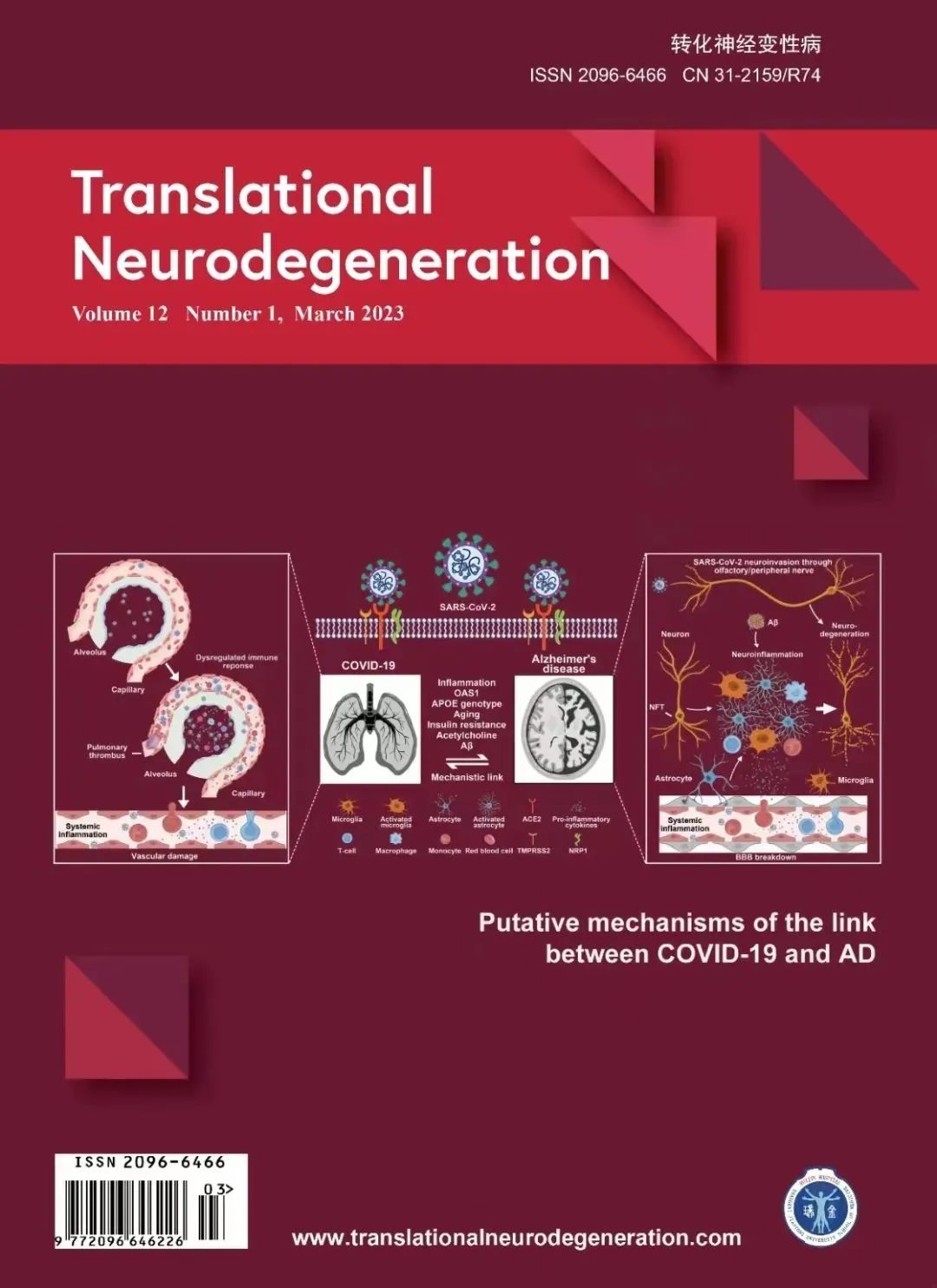Therapeutics for neurodegenerative diseases by targeting the gut microbiome: from bench to bedside
IF 10.8
1区 医学
Q1 NEUROSCIENCES
引用次数: 0
Abstract
The aetiologies and origins of neurodegenerative diseases, such as Alzheimer’s disease (AD), Parkinson’s disease (PD), amyotrophic lateral sclerosis (ALS) and Huntington’s disease (HD), are complex and multifaceted. A growing body of evidence suggests that the gut microbiome plays crucial roles in the development and progression of neurodegenerative diseases. Clinicians have come to realize that therapeutics targeting the gut microbiome have the potential to halt the progression of neurodegenerative diseases. This narrative review examines the alterations in the gut microbiome in AD, PD, ALS and HD, highlighting the close relationship between the gut microbiome and the brain in neurodegenerative diseases. Processes that mediate the gut microbiome–brain communication in neurodegenerative diseases, including the immunological, vagus nerve and circulatory pathways, are evaluated. Furthermore, we summarize potential therapeutics for neurodegenerative diseases that modify the gut microbiome and its metabolites, including diets, probiotics and prebiotics, microbial metabolites, antibacterials and faecal microbiome transplantation. Finally, current challenges and future directions are discussed.针对肠道微生物组的神经退行性疾病疗法:从实验室到病床
阿尔茨海默病(AD)、帕金森病(PD)、肌萎缩侧索硬化症(ALS)和亨廷顿病(HD)等神经退行性疾病的病因和起源是复杂和多方面的。越来越多的证据表明,肠道微生物组在神经退行性疾病的发生和发展过程中起着至关重要的作用。临床医生逐渐认识到,针对肠道微生物组的疗法有可能阻止神经退行性疾病的进展。这篇叙述性综述探讨了 AD、PD、ALS 和 HD 中肠道微生物组的改变,强调了神经退行性疾病中肠道微生物组与大脑之间的密切关系。我们评估了神经退行性疾病中介导肠道微生物组与大脑交流的过程,包括免疫、迷走神经和循环途径。此外,我们还总结了改变肠道微生物组及其代谢物的神经退行性疾病潜在疗法,包括饮食、益生菌和益生元、微生物代谢物、抗菌药和粪便微生物组移植。最后,还讨论了当前的挑战和未来的发展方向。
本文章由计算机程序翻译,如有差异,请以英文原文为准。
求助全文
约1分钟内获得全文
求助全文
来源期刊

Translational Neurodegeneration
Neuroscience-Cognitive Neuroscience
CiteScore
19.50
自引率
0.80%
发文量
44
审稿时长
10 weeks
期刊介绍:
Translational Neurodegeneration, an open-access, peer-reviewed journal, addresses all aspects of neurodegenerative diseases. It serves as a prominent platform for research, therapeutics, and education, fostering discussions and insights across basic, translational, and clinical research domains. Covering Parkinson's disease, Alzheimer's disease, and other neurodegenerative conditions, it welcomes contributions on epidemiology, pathogenesis, diagnosis, prevention, drug development, rehabilitation, and drug delivery. Scientists, clinicians, and physician-scientists are encouraged to share their work in this specialized journal tailored to their fields.
 求助内容:
求助内容: 应助结果提醒方式:
应助结果提醒方式:


